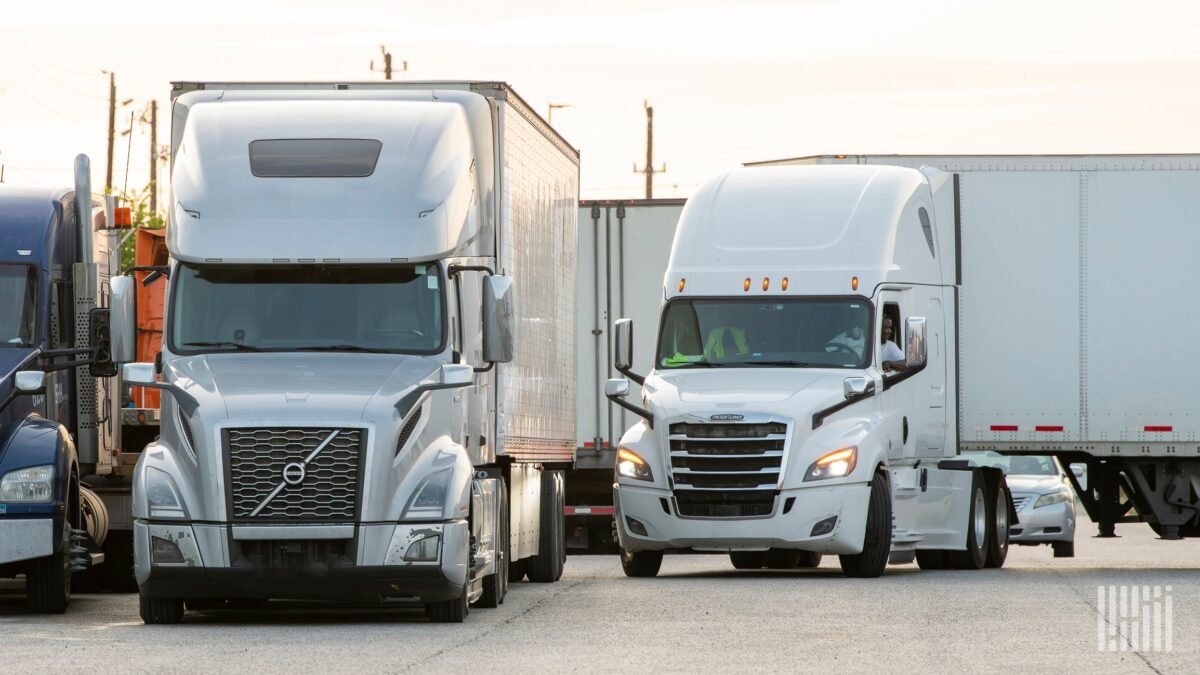A power only truck is a semi-truck that hauls a customer’s pre-loaded trailer instead of using its own. Power only trucking companies in the USA provide the tractor, driver, and logistics expertise to move freight efficiently. This setup gives shippers flexibility, reduces costs, and allows carriers to maximize fleet use without owning trailers.
Understanding Power Only Trucking
Power only trucking companies is a flexible freight solution where the carrier supplies the truck and driver, while the customer provides the trailer. In this arrangement, the trailer might contain goods already loaded for transport, or it may be part of a fleet of trailers rotated among various carriers.
This model differs from traditional full-service trucking, where the carrier owns both the truck and the trailer. Power only transportation companies fill a key logistics gap by helping businesses move their equipment, containers, and pre-loaded trailers across the country efficiently.
How Power Only Trucks Work
Power only trucks—often heavy-duty semi-trucks—are equipped with fifth-wheel connections compatible with a wide range of trailer types, including dry vans, flatbeds, refrigerated trailers, and tankers.
The process typically follows these steps:
- A shipper provides the trailer (either loaded or empty).
- A power only carrier sends a tractor and driver to pick up the trailer.
- The carrier hauls the load to the destination and returns or drops the trailer as instructed.
This system is common among large-scale manufacturers, logistics companies, and freight brokers who manage multiple trailer assets but need flexible capacity for tractors and drivers.
Why Power Only Trucking Companies Are Growing in the USA
Over the past few years, demand for power only trucking companies has risen sharply across the United States. Several factors drive this growth:
- Trailer Pooling and Flexibility: Many companies now maintain trailer pools at warehouses and distribution centers. Power only carriers help reposition these trailers efficiently.
- Surge Capacity: When demand spikes during seasonal peaks, companies can rely on power only trucks to increase capacity without buying or leasing new equipment.
- Cost Savings: Since the shipper provides the trailer, maintenance and ownership costs decrease, while carriers maximize asset use.
- Driver Shortages: Power only operations often enable faster turns, helping carriers keep drivers moving and earning more.
Key Services Offered by Power Only Carriers
Most power only carriers in the USA offer a range of flexible services to meet specific freight needs. These may include:
Drop-and-Hook Freight
One of the main advantages of power only trucking is the drop-and-hook model, where drivers simply drop off one trailer and hook to another. This reduces loading time, eliminates warehouse delays, and keeps shipments moving efficiently.
Long-Haul and Regional Hauling
Power only transportation companies operate across the nation, offering both regional and cross-country hauls. Many carriers specialize in routes between major freight hubs like Dallas, Atlanta, Chicago, and Los Angeles.
Dedicated Power Only Service
Some businesses require dedicated capacity for consistent lanes. Dedicated power only service allows shippers to partner with a specific carrier long-term, ensuring reliability and consistent pricing.
Port and Rail Drayage
Power only trucks are also used for drayage — moving containers between ports, rail yards, and distribution centers. Many US carriers integrate power only operations into intermodal logistics strategies.
Benefits of Power Only Trucking for Shippers
Power only trucking offers multiple benefits to logistics teams and fleet operators, especially those managing complex supply chains.
Flexibility and Control
Shippers maintain control over their trailers while leveraging external carriers for movement. This means they can choose when and where trailers move without committing to full truck ownership.
Reduced Costs
Without having to own tractors or hire full-time drivers, companies reduce capital investment and maintenance expenses.
Faster Turnaround Times
Because power only operations rely on pre-loaded trailers, loading and unloading delays are minimized, keeping freight moving efficiently.
Reliable Capacity
During high-demand periods, power only carriers provide a dependable way to scale operations without long-term commitments.
Advantages for Power Only Carriers
For truck owners and carriers, the power only model also brings several strategic benefits:
- No Need for Trailers: Carriers save money by operating without the cost of owning, maintaining, or insuring trailers.
- Higher Equipment Utilization: Drivers can stay on the road longer since loading delays are reduced.
- Access to Consistent Freight: Many logistics companies and brokers continuously need power only carriers, offering stable load opportunities.
- Simplified Operations: Fewer assets mean less administrative burden and reduced maintenance scheduling.
Power Only Transportation Companies: What They Do
Power only transportation companies connect shippers with qualified carriers and drivers. They coordinate logistics, verify trailer compatibility, and manage load tracking from pickup to delivery.
These companies typically provide:
- Real-time load management systems
- Driver and equipment vetting
- Trailer pool coordination
- Insurance and compliance oversight
- 24/7 dispatch and tracking services
Some major US logistics providers integrate power only solutions into broader transportation networks, giving customers both flexibility and scalability.
Common Industries Using Power Only Trucks
Power only trucks serve a wide range of industries across the United States. Some of the most common include:
- Manufacturing: Moving heavy machinery, parts, and raw materials.
- Retail and E-commerce: Transporting pre-loaded dry van trailers for distribution centers.
- Construction: Hauling flatbeds with equipment or materials.
- Oil and Gas: Handling tankers and specialized trailers.
- Agriculture: Moving seasonal loads quickly with temporary capacity.
- Intermodal Logistics: Providing first- and last-mile drayage between rail or ports.
Challenges in Power Only Trucking
While power only operations offer flexibility, they come with challenges carriers and shippers must manage carefully:
- Trailer Compatibility: Ensuring tractor fifth-wheel height and connections match the shipper’s trailers.
- Load Security: Carriers must verify that trailers are loaded and secured properly before hauling.
- Coordination and Timing: Synchronizing trailer availability, driver schedules, and route timing is essential for efficiency.
- Regulatory Compliance: Power only carriers must still adhere to DOT and FMCSA regulations for hours of service, safety, and equipment standards.
Choosing the Right Power Only Trucking Partner
Selecting a reliable power only trucking company in the USA requires more than just finding available capacity. Shippers should evaluate:
- Experience: Look for carriers with proven expertise in power only operations and diverse trailer compatibility.
- Fleet Size: Larger fleets offer greater flexibility and coverage.
- Technology: Modern carriers use GPS tracking and digital load management tools to ensure visibility and communication.
- Insurance and Compliance: Verify FMCSA registration, insurance coverage, and safety ratings.
- Customer Support: Around-the-clock communication ensures quick issue resolution during transport.
Long-Term Role of Power Only Carriers in US Logistics
Power only trucking is becoming a cornerstone of modern supply chains. With trailer pools, drop-and-hook operations, and flexible contracts, this model supports the growing demand for efficiency and agility.
In major freight markets such as Texas, California, Illinois, and Georgia, the shift toward power only logistics helps companies respond to fluctuating demand, reduce empty miles, and increase driver productivity.
As e-commerce and intermodal freight continue to expand, power only carriers will play an even greater role in ensuring goods move smoothly across the nation.
Future Trends in Power Only Transportation
Several emerging trends are shaping the future of power only transportation companies:
- Digital Freight Matching: Technology platforms now connect shippers and carriers in real time, improving route optimization.
- Sustainability: Carriers adopting newer, fuel-efficient trucks help reduce emissions in the supply chain.
- Dedicated Partnerships: Many large shippers are forming exclusive agreements with power only carriers to ensure steady capacity.
- Regional Expansion: Smaller regional carriers are entering the market, increasing availability in underserved routes.
Frequently Asked Questions
What does “power only” mean in trucking?
Power only refers to a trucking service where a carrier provides just the tractor and driver to haul a trailer supplied by the shipper.
Why do shippers use power only carriers?
Shippers use them for flexibility, cost savings, and faster turnaround times since they can pre-load trailers and move them as needed.
Can any semi-truck be used for power only loads?
Most standard tractors can handle power only loads, but compatibility with trailer types must be confirmed.
Is power only trucking profitable for carriers?
Yes. It reduces asset costs, keeps drivers moving, and offers steady freight opportunities from logistics companies and brokers.
Which states have the highest demand for power only trucking?
High-demand regions include Texas, California, Florida, and Midwest logistics hubs like Illinois and Ohio.
Final Thoughts
Power only transportation companies has become a vital solution for modern freight transportation in the USA. By separating the tractor from the trailer, shippers and carriers both gain efficiency, cost control, and operational flexibility.
Whether you are a shipper seeking reliable capacity or a carrier looking for steady freight, power only trucking companies bridge the gap—offering scalable, efficient, and adaptable logistics support across America.










Leave a Reply